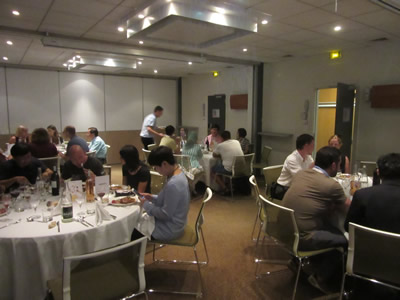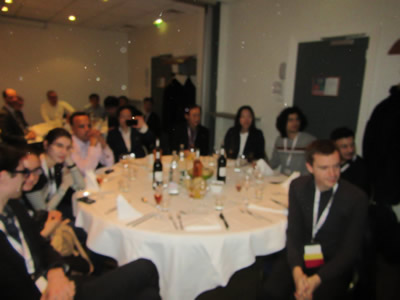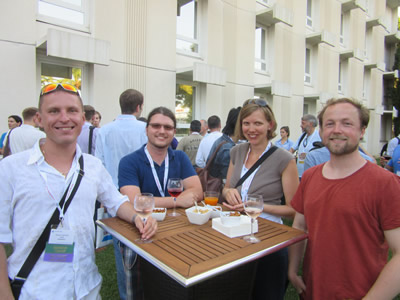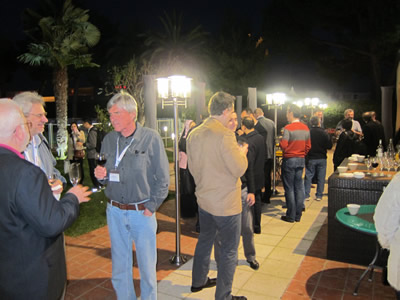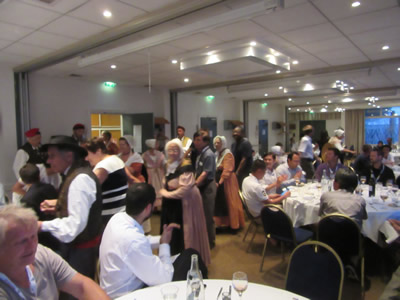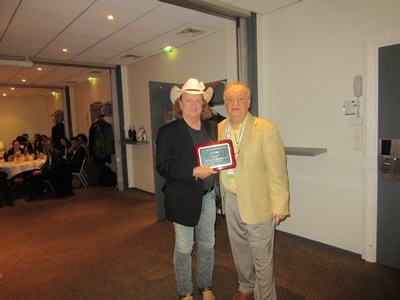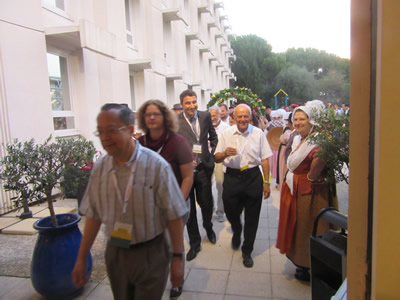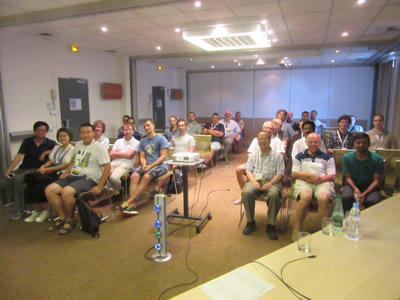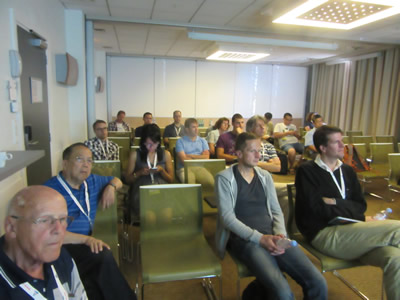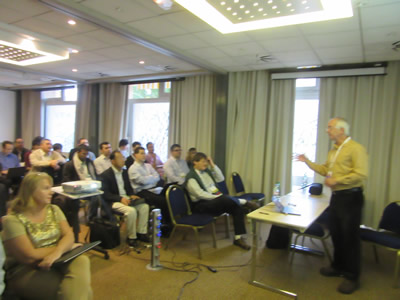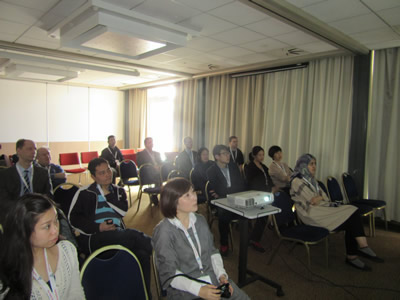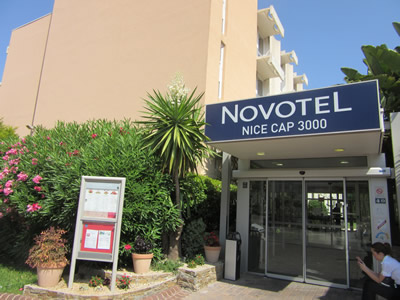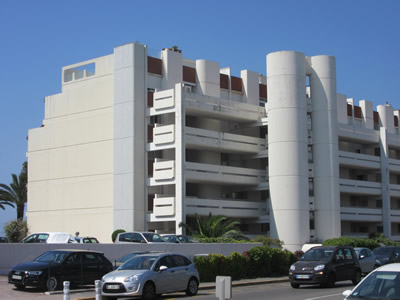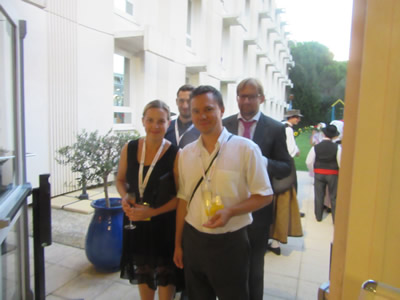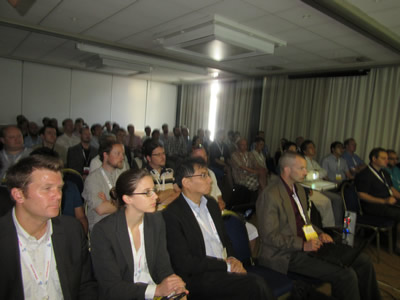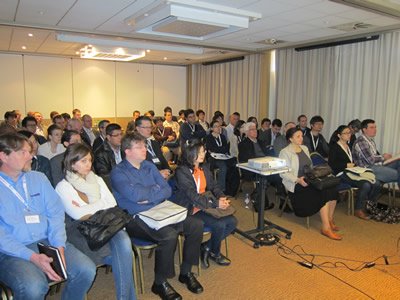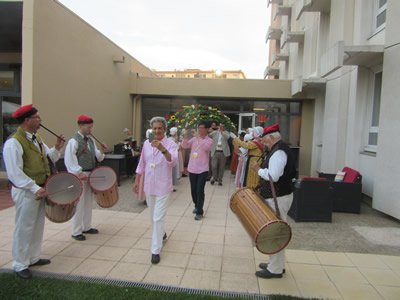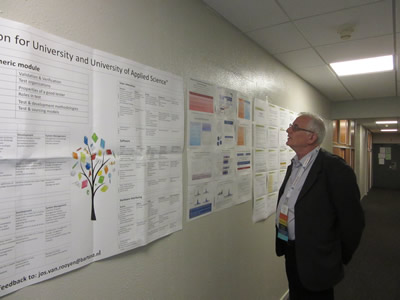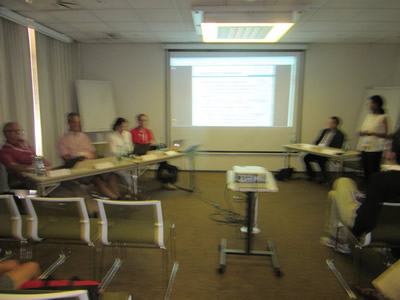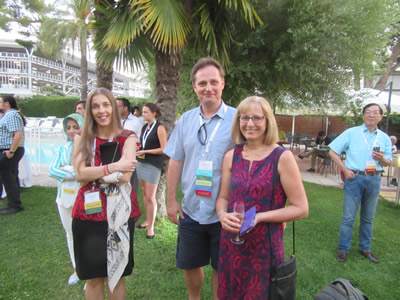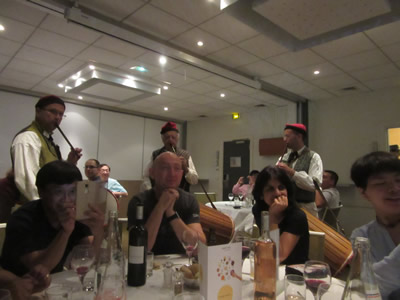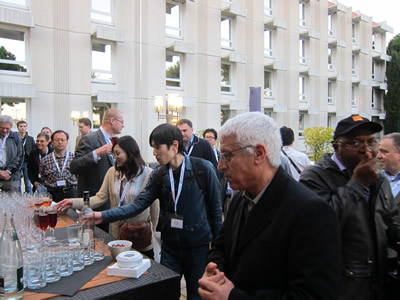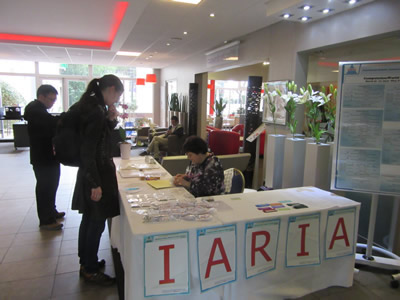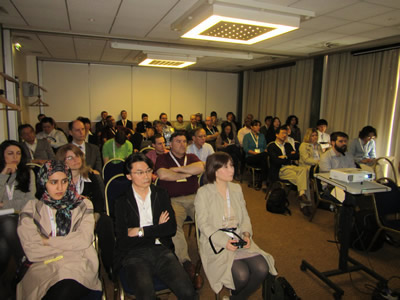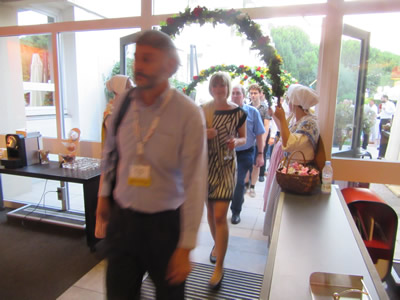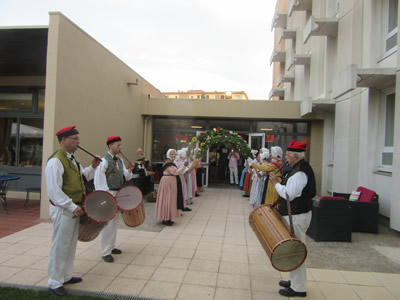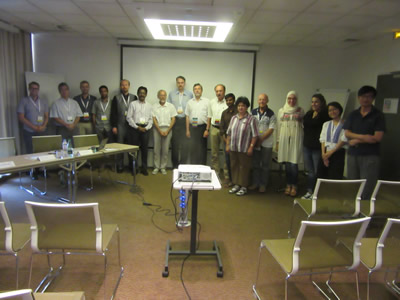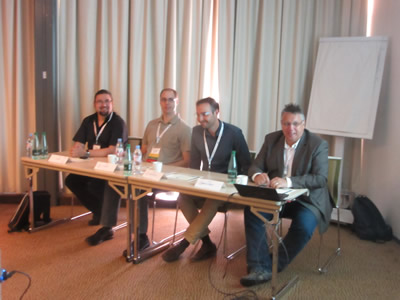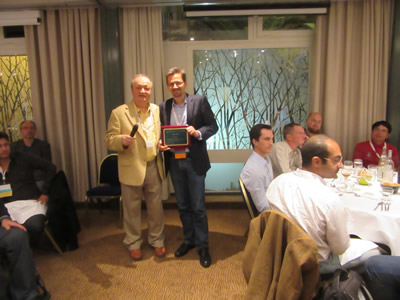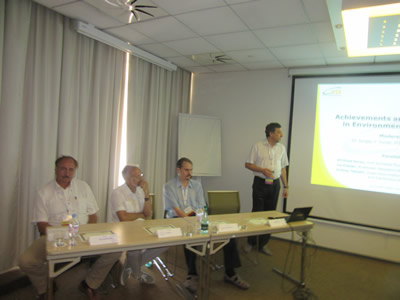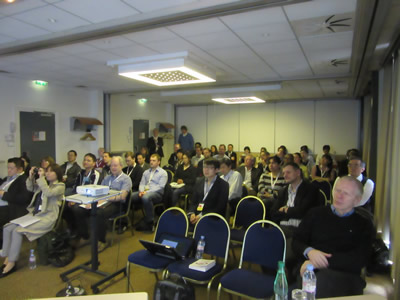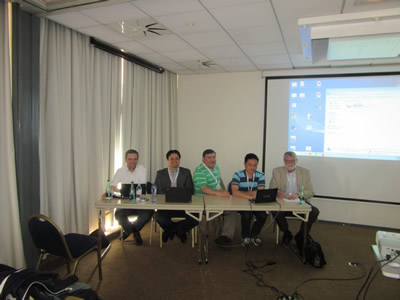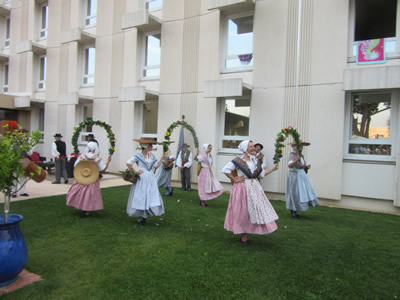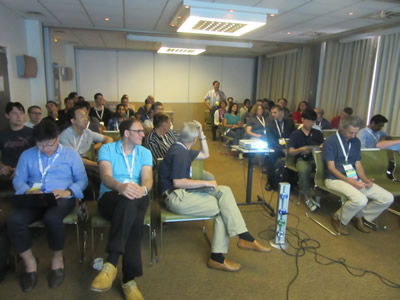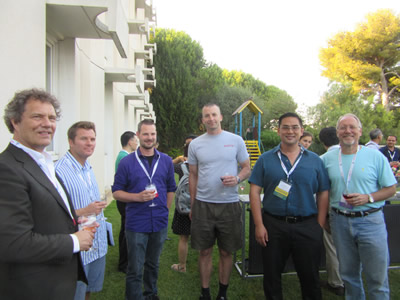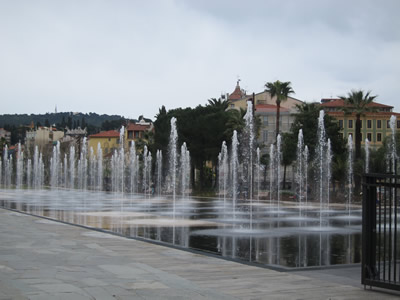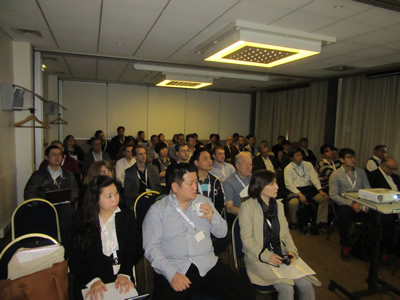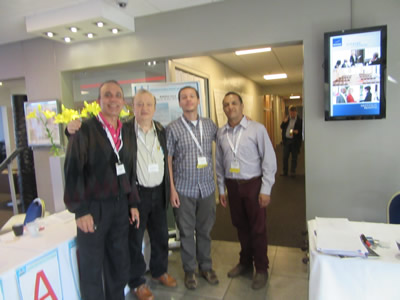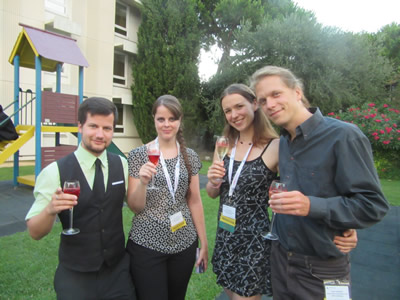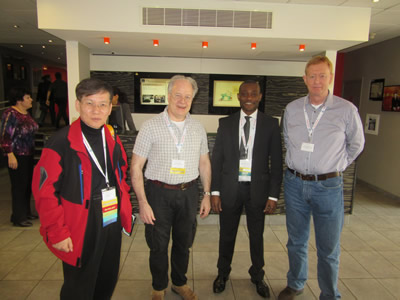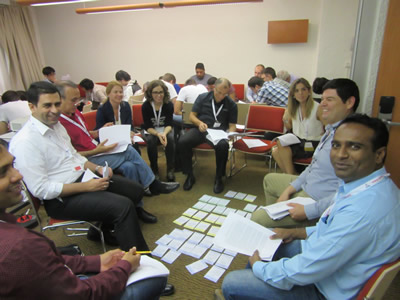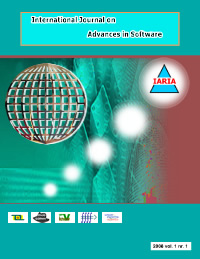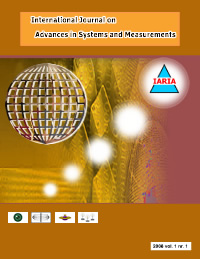SIMUL 2018 - The Tenth International Conference on Advances in System Simulation
October 14, 2018 - October 18, 2018
SIMUL 2018: Call for Papers
SIMUL 2018 continues a series of events focusing on advances in simulation techniques and systems providing new simulation capabilities. While different simulation events are already scheduled for years, SIMUL 2018 identifies specific needs for ontology of models, mechanisms, and methodologies in order to make easy an appropriate tool selection. With the advent of Web Services and WEB 3.0 social simulation and human-in simulations bring new challenging situations along with more classical process simulations and distributed and parallel simulations. An update on the simulation tool considering these new simulation flavors is aimed at too.
The conference will provide a forum where researchers shall be able to present recent research results and new research problems and directions related to them. The conference seeks contributions to stress-out large changels in scale system simulation, and advanced mechanisms and methodologies to deal with them.
We solicit both academic, research, and industrial contributions. We welcome technical papers presenting research and practical results, position papers addressing the pros and cons of specific proposals, such as those being discussed in the standard fora or in industry consortia, survey papers addressing the key problems and solutions on any of the above topics short papers on work in progress, and panel proposals.
Industrial presentations are not subject to the format and content constraints of regular submissions. We expect short and long presentations that express industrial position and status.
Tutorials on specific related topics and panels on challenging areas are encouraged.
The topics suggested by the conference can be discussed in term of concepts, state of the art, research, standards, implementations, running experiments, applications, and industrial case studies. Authors are invited to submit complete unpublished papers, which are not under review in any other conference or journal in the following, but not limited to, topic areas.
All topics and submission formats are open to both research and industry contributions.
SIMUL 2018 conference tracks:
Trends and achievements
Simulating Industry 4.0 systems; Simulating Internet-of-Things (IoT)-based systems; Simulating multidimensional social networks; Explicit semantic for co-simulation; Aspects-based simulation modeling; Distributed simulation of autonomous systems; Simulation urban-situations n smart cities; Validating mission-critical applications; Exascale simulations high performance systems; Simulation of Internet of Vehicle (IoV) systems
Simulation models
Monte Carlo simulation; Statistical analysis of simulation output; Analytical simulation modeling; Discrete event simulation models; Credible simulation models; Multi-objective simulation models; Multisimulation with multiresolution, multistage multimodels; Verification and validation of simulation models; Simulation metamodels; Executable simulation models; Emulation models; Regression models and experimental designs; Kriging metamodeling; Kriging metamodeling in discrete-event simulation; Kriging modeling for global approximation
Simulation methodologies
Sensitivity analysis; Rare-event simulation methodology; Agent-based modeling and simulation; Regenerative steady-state simulation; Simulation-based ordinal optimization; Ontology-based simulation methodology; Simulation component reuse methodology; Two-level simulation methodology; Emulation methodologies; System adaptation simulation; Simulation methodologies for autonomic and autonomous systems; Virtual reality simulation methodologies; Virtualization simulation; Construction simulation methodologies
Sensitivity analysis
Systematic simulation using sensitive analysis; Probabilistic sensitivity analysis; Sensitivity analysis of simulation technologies (Monte Carlo, Streamline, Spatial models, etc.); Domain-oriented sensitivity analysis (optimization, estimation matching, climate); Sensitivity analysis of products features, formalisms, design optimization (systems, code); Assessing the competency of business services (public, health, transportation, etc.); Sensitivity analysis and performance extrapolation; Adjoint transient sensitivity analysis; Causality and sensitivity analysis; Assessing the accuracy of sensitivity analysis
Simulation mechanisms
Composing simulation models; Reusable simulation model; Uncertainty simulation; Continuous-variable simulation optimization; Approximate zero-variance simulation; Probabilistic processes for simulation; Progressive model fitting; Steady-state simulations with initial transients; Merging simulation and optimization; Simulation optimization, stochastic programming and robust optimization; Overlapping variance estimators; Kriging interpolation in simulation; Kriging versus regression analysis; Interpolation; Random simulation; Prediction and simulation; Interpolation /Kriging, Cokriging, Conditional Simulation, and Inverse Distance Weighting/
Model based system prediction
Model based prediction of system quality characteristics and their trade-offs; Prediction models; Methods and tools for system quality prediction; Reliability prediction; Security prediction; Risk prediction; Performance prediction; Uncertainty handling in prediction models; Prediction of change impacts on system quality and risk; Quality and trustworthiness of prediction models; Predictability of system quality characteristics; Predictability of dynamic and adaptive systems; Data acquisition methods in system quality prediction; Traceability and maintainability of prediction models; Inference types in prediction models; Experience reports on and application areas for system quality prediction; Empirical studies on system quality prediction
Distributed simulation
Large-scale simulation experiments; Industrial scale simulation; Time aspects in distributed simulation; Resource constraints in distributed simulation; Distributed disaster decision simulation; Simulation for rapid assessment of distributed impacts; Parallel and distributed simulation; Model-driven distributed simulation engineering
Human-in simulation
User-in-the-middle simulations; User-feedback in simulations; User-adaptive simulations; Bioterrorism preparedness simulation; Probabilistic risk assessment; Measurement of situation awareness
Simulations in advanced environments
Simulation in Virtualized systems; Simulation in Cloud environments; Simulations in GRID environments; Simulation in Cognitive systems; Simulation in P2P systems; Simulation in Data Centers; Simulation in Power Distribution Centers; Simulation in micro- and nano-systems; Simulation in Geospatial systems; Geostatistics simulation; Spatial simulation; Simulation in Self-Adaptable systems; Simulation in Ubiquitous systems; Simulation in Underwater Vehicular and Communications systems; Simulations in Mobile and Vehicular systems; Simulation in eHealth systems;Computational fluid dynamics simulations for urban and environmental applications
Practical applications on process simulations
Uncertainty in industrial practice; Simulation for business planning; Application to finance; Logistics simulation; Supply chain simulation; Software reliability simulation; Simulation in vehicular systems /avionics, satellites, terrestrial/; Simulation models for manufacturing; Climate and weather-related simulations; Biological system simulation; Chemical system simulation; Commercial simulation environments; Healthcare simulation; Hospital planning; Simulation-based scheduling; Simulation in warehouse operations; Manufacturing simulation interoperability; Telecommunications simulations /reliability, queuing, fault spreading, virus contamination/; Cyber-attack modeling and simulation; Sensor fusion simulation
Case studies on social simulation
Group-work interaction simulation; Behavior analysis in simulations; Social need simulations; Simulating urban open spaces; Social decision simulation; Real-time decision making simulation; e-Polling simulation; Validation of simulated real-world; Simulation to predict market behavior; Predictions via similarity-based data-mining; Simulation of groups in e-Government systems; Simulation of urban mobility
Online social simulation
Online social models, social networking; Simulation of conflicts, cooperation, persuasions; Simulation of dynamics, group decisions, emerging behavior and situations; Simulation of interactive games, predictions and distributed tasks; Simulation of 3D online communities, massive online multiplayers, virtual social communities; Life problems simulation (sociology, political science, economics, anthropology, geography, archeology and linguistics); Group innovation and consumption simulation; Applications, techniques, tools, computational frameworks, experiments and lessons
Building simulation
Simulation of building physics; Human simulation of the indoor environment; Civil-oriented and enterprise-oriented simulations; Simulation of building services (lightning, heating, cooling, ventilation, insulation, etc.); Simulation of energy capture and conversion; Simulation of solar buildings, geothermal energy buildings; Simulation for earthquakes, flooding, fire propagation, etc.; Simulation of design practice; Tools and applications to simulate building-related properties and situations
Transport simulation
Transport system models; Airport simulation; Public transport simulation; Merchandise port simulation; Rural transport simulation during harvest time; Shipping transport simulation; Content and volume-based transport simulation; Simulation of traffic control and synchronization; Prediction accuracy of transport simulations; Simulation of transport projects
Warfare simulation
Warfare simulation environments and models; Tactical and strategic warfare simulation; Attack warfare simulation; Urban warfare simulation; Warfare simulation in unknown environment; Underwater, terrestrial, and spatial simulations; Hierarchical control simulation; Warfare gaming
Simulation tools and platforms
Discrete-event simulation software; Commercial off-the-shelf simulation package interoperability; Ontology-based tools for simulation integration; Simulation frameworks for energy-efficient systems; Public system applications; Simulators for business planning; Simulation tools for systems biology; Simulation tools for constructions /bridges, railways, industrial buildings, subways/
Experience report on ready-to-use tools
ShowFlow and XJ technologies; Rockwell Automation and Frontline Systems; SIMULE-Planner, AutoMOD; PMC-Kanban Simulator, Program Portfolio Simulator and Asprova Scheduler; 3D simulator tool-kits; Wolverine Software-SLX; OPNET; OMNET++; NIIST; NS-2; NS-3; ATDI ICS; Qualnet; Dymola; Matlab/Simulink; Open source tools
Deadlines:
Submission | Jun 28, 2018 |
Notification | Jul 31, 2018 |
Registration | Aug 12, 2018 |
Camera ready | Aug 22, 2018 |
Deadlines differ for special tracks. Please consult the conference home page for special tracks Call for Papers (if any).
INSTRUCTION FOR THE AUTHORS
Authors of selected papers will be invited to submit extended versions to one of the IARIA Journals.
Publisher: XPS (Xpert Publishing Services)
Archived: ThinkMindTM Digital Library (free access)
Prints available at Curran Associates, Inc.
How to submit to appropriate indexes.
Only .pdf or .doc files will be accepted for paper submission. All received submissions will be acknowledged via an automated system.
Contribution types
- regular papers [in the proceedings, digital library]
- short papers (work in progress) [in the proceedings, digital library]
- ideas: two pages [in the proceedings, digital library]
- extended abstracts: two pages [in the proceedings, digital library]
- posters: two pages [in the proceedings, digital library]
- posters: slide only [slide-deck posted on www.iaria.org]
- presentations: slide only [slide-deck posted on www.iaria.org]
- demos: two pages [posted on www.iaria.org]
FORMATS
Only .pdf or .doc files will be accepted for paper submission. All received submissions will be acknowledged via an automated system.
Final author manuscripts will be 8.5" x 11", not exceeding 6 pages; max 4 extra pages allowed at additional cost.
Helpful information for paper formatting for MS Word can be found here.
There is a community provided LaTeX template: the CTAN package iaria (with full IARIA formatting rules, including IARIA citation style, but for providing citation style it is tightly bound to pdflatex+biblatex+biber). In addition, there is also iaria-lite (not bound to pdflatex+biblatex+biber, but compatible with any TeX stack; thus, it cannot provide the IARIA citation formattings, but only the titlepage and content-related IARIA formatting rules). Based on the iaria package, there is a minimal working example as Overleaf template. When you are using the LaTeX templates, please still adhere to the additional editorial rules.
Slides-based contributions can use the corporate/university format and style.
Your paper should also comply with the additional editorial rules.
Once you receive the notification of contribution acceptance, you will be provided by the publisher an online author kit with all the steps an author needs to follow to submit the final version. The author kits URL will be included in the letter of acceptance.
We would recommend that you should not use too many extra pages, even if you can afford the extra fees. No more than 2 contributions per event are recommended, as each contribution must be separately registered and paid for. At least one author of each accepted paper must register to ensure that the paper will be included in the conference proceedings and in the digital library, or posted on the www.iaria.org (for slide-based contributions).
CONTRIBUTION TYPE
Regular Papers (up to 6-10 page article -6 pages covered the by regular registration; max 4 extra pages allowed at additional cost- ) (oral presentation)
These contributions could be academic or industrial research, survey, white, implementation-oriented, architecture-oriented, white papers, etc. They will be included in the proceedings, posted in the free-access ThinkMind digital library and sent for indexing. Please submit the contributions following the instructions for the regular submissions using the "Submit a Paper" button and selecting the appropriate contribution type. 12-14 presentation slides are suggested.
Short papers (work in progress) (up to 4 pages long) (oral presentation)
Work-in-progress contributions are welcome. These contributions represent partial achievements of longer-term projects. They could be academic or industrial research, survey, white, implementation-oriented, architecture-oriented, white papers, etc. Please submit the contributions following the instructions for the regular submissions using the "Submit a Paper" button and selecting the contribution type as work in progress. Contributors must follow the conference deadlines, describing early research and novel skeleton ideas in the areas of the conference topics. The work will be published in the conference proceedings, posted in the free-access ThinkMind digital library and sent for indexing. For more details, see the Work in Progress explanation page. 12-14 presentation slides are suggested.
Ideas contributions (2 pages long) (oral presentation)
This category is dedicated to new ideas in their very early stage. Idea contributions are expression of yet to be developed approaches, with pros/cons, not yet consolidated. Ideas contributions are intended for a debate and audience feedback. Please submit the contributions following the instructions for the regular submissions using the "Submit a Paper" button and selecting the contribution type as Idea. Contributors must follow the conference deadlines, describing early research and novel skeleton ideas in the areas of the conference topics. The work will be published in the conference proceedings, posted in the free-access ThinkMind digital library and sent for indexing. For more details, see the Ideas explanation page. 12-14 presentation slides are suggested.
Extended abstracts (2 pages long) (oral presentation)
Extended abstracts summarize a long potential publication with noticeable results. It is intended for sharing yet to be written, or further on intended for a journal publication. Please submit the contributions following the instructions for the regular submissions using the "Submit a Paper" button and selecting the contribution type as Extended abstract. Contributors must follow the conference deadlines, describing early research and novel skeleton ideas in the areas of the conference topics. The work will be published in the conference proceedings, posted in the free-access ThinkMind digital library and sent for indexing. 12-14 presentation slides are suggested.
Posters (paper-based, two pages long) (oral presentation)
Posters are intended for ongoing research projects, concrete realizations, or industrial applications/projects presentations. The poster may be presented during sessions reserved for posters, or mixed with presentation of articles of similar topic. A two-page paper summarizes a presentation intended to be a POSTER. This allows an author to summarize a series of results and expose them via a big number of figures, graphics and tables. Please submit the contributions following the instructions for the regular submissions using the "Submit a Paper" button and selecting the contribution type as Poster Two Pages. Contributors must follow the conference deadlines, describing early research and novel skeleton ideas in the areas of the conference topics. The work will be published in the conference proceedings, posted in the free-access ThinkMind digital library and sent for indexing. 8-10 presentation slides are suggested. Also a big Poster is suitable, used for live discussions with the attendees, in addition to the oral presentation.
Posters (slide-based, only) (oral presentation)
Posters are intended for ongoing research projects, concrete realizations, or industrial applications/projects presentations. The poster may be presented during sessions reserved for posters, or mixed with presentation of articles of similar topic. The slides must have comprehensive comments. This type of contribution only requires a 8-10 slide-deck. Please submit the contributions following the instructions for the regular submissions using the "Submit a Paper" button and selecting the contribution type as Poster (slide-only). The slide-deck will be posted, post-event, on www.iaria.org.
8-10 presentation slides are suggested. Also a big Poster is suitable, used for live discussions with the attendees, additionally to the oral presentation.
Presentations (slide-based, only) (oral presentation)
These contributions represent technical marketing/industrial/business/positioning presentations. This type of contribution only requires a 12-14 slide-deck. Please submit the contributions following the submission instructions by using the "Submit a Paper" button and selecting the contribution type as Presentation (slide-only). The slide-deck will be posted, post-event, on www.iaria.org.
12-14 presentation slides are suggested.
Demos (two pages) [posted on www.iaria.org]
Demos represent special contributions where a tool, an implementation of an application, or a freshly implemented system is presented in its alfa/beta version. It might also be intended for thsoe new application to gather the attendee opinion. A two-page summary for a demo is intended to be. It would be scheduled in special time spots, to ensure a maximum attendance from the participants. Please submit the contributions following the submission instructions by using the "Submit a Paper" button and selecting the contribution type as Demos. The Demos paper will be posted, post-event, on www.iaria.org.
Tutorial proposals
Tutorials provide overviews of current high interest topics. Proposals should be for 2-3 hour long. Proposals must contain the title, the summary of the content, and the biography of the presenter(s). The tutorial slide decks will be posted on the IARIA site.
Please send your proposals to tutorial proposal
Panel proposals
The organizers encourage scientists and industry leaders to organize dedicated panels dealing with controversial and challenging topics and paradigms. Panel moderators are asked to identify their guests and manage that their appropriate talk supports timely reach our deadlines. Moderators must specifically submit an official proposal, indicating their background, panelist names, their affiliation, the topic of the panel, as well as short biographies. The panel slide deck will be posted on the IARIA site.
Please send your proposals to panel proposal

